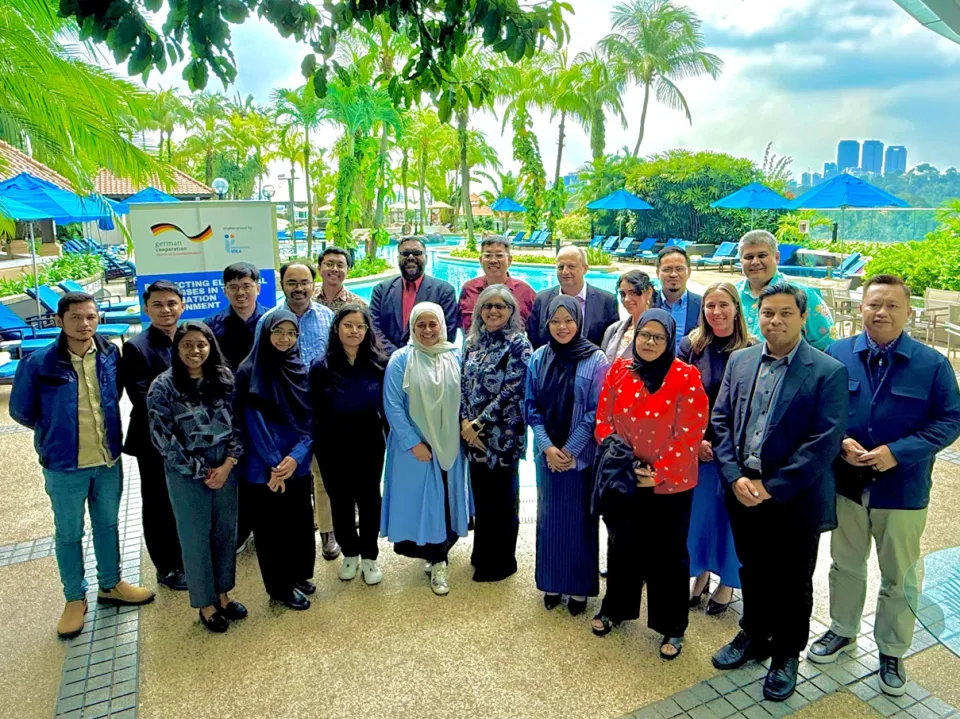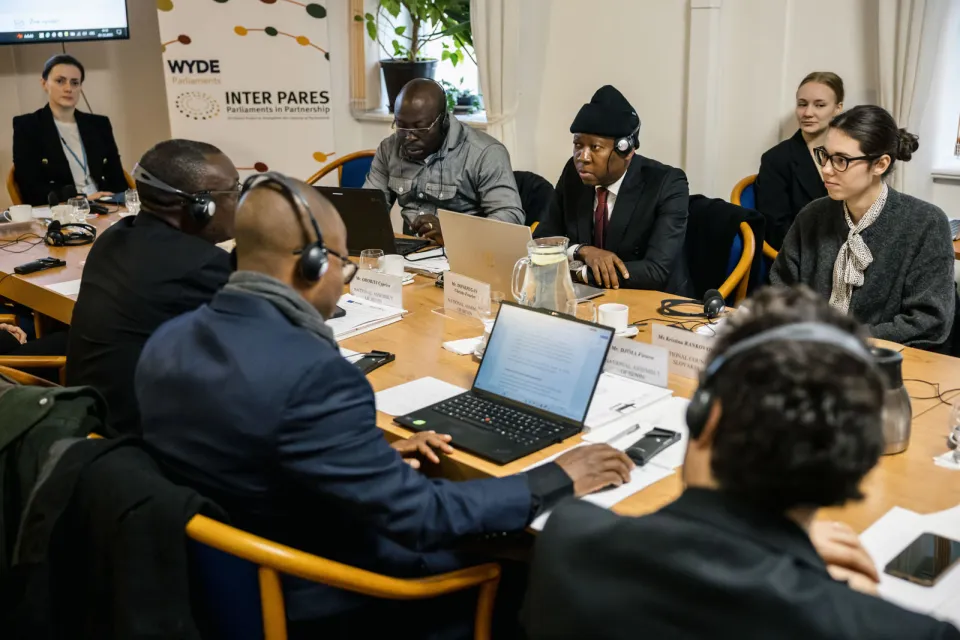Uruguay’s 1996 constitutional reform included an innovative approachi to electoral matters: all political parties were required to hold open and simultaneous elections to elect their presidential candidates four months before the presidential election. This is obligatory even if there is no competition for the candidacy within a political party. In addition, citizen participation is voluntary and it is not necessary to be a member of a political party or registered with it to vote in the primaries. These characteristics produce an especially interesting result: the election not only decides which party leaders will compete in the presidential electionii, but it makes it possible to measure the importance of partisan politics among citizens, as well as the degree of political loyalty of these citizens to their parties.
Primary or ‘internal’ elections took place for the fourth time in the history of Uruguay on Sunday 1 June 2014iii. Participation in this electoral competition has been decreasing, as shown in Table 1, although voter turnout in national elections is usually very highiv. Politics continues to be important (52.1% of those surveyed by LAPOP), and the parties ‘listen’ to demands, according to 47.9% of those surveyedv. In Uruguay, the prominence of political parties has led to a type of pluralistic presidentialism, far removed from the hyper-presidentialism prevailing in other Latin American countries. However, the turnover of political elites is quite low: the average age of politicians is around 50 years old; women’s participation is low; and most legislators come from deep inside their parties and are often from political families.
The people who participate in these non-compulsory events are primarily ideologically committed on the ‘right‘ or the ‘left’, as well as older citizens or those with the highest educational levels. However the low and decreasing levels of participation attract attention and should be investigated.
In what follows, we analyze the results for each political party before providing a more general analysis.
Partido Colorado: between tradition and renovation
The Partido Colorado, is one of Uruguay’s ‘traditional’ parties (and the party of José Batlle y Ordóñez, one of the founders of the democratic, secular and modern Uruguay). It lost followers after the administration of Jorge Batlle (2000-05), although it recovered slightly in 2009 (16.9%) with Pedro Bordaberry (a son of former president Juan María Bordaberry, who carried out a coup against his own administration in 1973) as a presidential candidate. The 1 June 2014 elections were won by Pedro Bordaberry, ‘a young renovator’ (54 years old) compared to one of his opponents, José Amorín Batlle (60 years old, also a son of a politician, who was a minister during the first years of office of Juan María Bordaberry). ‘Pedro’ (as he likes to be called, to set himself apart from his family’s legacy) emphasized security, and is the main promotor of a referendum to reduce the age of imputability. With great charisma, he represents a liberal-conservative right wing which is distant from his father’s orientation. He received 74% of the votes of the Partido Colorado (or 10% of the total number of voters, less than 4% of those eligible to vote). Even though surveys indicate that he does not have a chance competing for the presidency, he will probably become a member of the Senate, where he will play an important role in the second round balloting between Tabaré Vázquez and Luis Lacalle-Pou.
Partido Nacional: more competition and more renovation
The Partido Nacional, a traditional Uruguayan party, was widely favoured in the primary elections, obtaining 41.3% of the vote (or 15.3% of those eligible to vote). In this case, polling companies did not make accurate predictions based on pre-election survey data. Contradicting these predictions, Luis Lacalle Pou won (with 54.3% of the vote), while Jorge Larrañaga, a 58-year old, finished in second place (with 45.4% of the vote). Lacalle Pou is the youngest presidential candidate (40 years old). He is also is younger than the average age of Uruguayan legislators, and substantially younger than president Mujica (79 years old). The son of a former president of Uruguay (1990-95), he presents himself as a liberal, a ‘rebel with a cause’, who proposed lthe egalization of cannabis production for personal use (as opposed to the sale of marijuana by the State), and promises to renew politics ‘here and now’. His political campaign was one of the best in terms of publicity: its ‘musical discourse’ in particular, attracted a great deal of attention and sympathyvi.
Pedro Bordaberry (the son of an authoritarian ex-president), and most notably Luis Lacalle Pou (a son of a neo-liberal ex-president), represent an up-to-date right wing, more liberal and tolerant in political terms, and less neo-libera with respect to economic issues, which represents a greater challenge to the incumbent left wing administration.
Encuentro Progresista-Frente Amplio: discouragement, discrimination and challenge
The party Encuentro Progresista-Frente Amplio has been in office for almost 10 years, which is probably one of the reasons for the little enthusiasm it has aroused in a political sector in which levels of political-electoral participation are usually higher.
The first primary election in the history of Uruguay (1999) saw the left achieve gains in zones which had historically ‘belonged’ to the Partido Nacional. Encuentro Progresista-Frente Amplio obtained 40.1% of the vote, as opposed to 22.3% for the Partido Nacional and 32.8% for the Partido Colorado. In 2014 the left wing parties obtained a total of 30% of the vote. Although Tabaré Vázquez obtained 81.9% of the vote compared to 17.8% for Constanza Moreira, the detailed results show some rifts.
With limited financial resources, the support of some deputies and senators, and from some political groups with a majority of youth and women (such as the IR group), in a few months Constanza Moreira – an ‘outsider’ from the left (who is currently a Senator, but does not have a partisan background nor a history of being politically active in labour unions or social organizations) – was able to capture the votes of those who reject the return of former president Tabaré Vázquezvii. Her campaign, just as that of Luis Lacalle-Pou, was surprising both for its freshness and its bet on the future (‘I’m motivated and so are you’)viii. At the same time, the resistance to her candidacy in certain sectors on the left revealed the deep rooted resistance in Uruguay to women’s political participation. Although it would be worthwhile to investigate this issue, the underestimation of Constanza Moreira’s chances has probably had the unintended effects of obtaining support from citizens who initially were not thinking about voting for her, and abstention of voters in the internal election who will vote for Tabaré Vázquez in the presidential election.
Along with the growth of Constanza’s candidacy, the support received by Raúl Sendic (a son of the Tupamaro leader who was confined during the dictatorship) was also unexpected and lead to questioning the quality of the surveys. Raúl also moved away from the conventional and unattractive positions of Tabaré Vázquez (and Jorge Larrañaga too). Instead, he bet on his relative youth (52 years), and presented himself as a part of a generation that learned to manage. He is the sectorial leader who obtained the most votes within the Frente Amplio, and was able to win in places where the incumbent party had a very low membership.
In short, although the leadership of Tabaré Vázquez was validated, at the same time a question mark remained due to the high level of abstention, the votes obtained by Constanza Moreira, and because the Partido Socialista (the sector to which Tabaré Vázquez belongs), achieved unimpressive results (fourth place with 11% of the vote) compared to the support received by Sendic (21%).
In October: President Tabaré?
Although the probability of Tabaré Vázquez winning the Presidency in October or in a second round in November continues to be high based on the results of the primary elections, he faces strong challenges. He must select a running mate who will help him compete against a charismatic ‘politically incorrect’ younger candidate, and overcome citizen apathy towards the left which has now been in office for two terms. To win, Tabaré will have to change his style and way of communication to become more modern and fresh, and, most importantly, to make proposals to win over citizens again, without contradicting its party’s efforts in previous years, while promising to improve education and security.
Uruguay continues to slouch with equality within the context of politics: not a single female candidate in the 2014 presidential formulas.
| ‘Primary’ elections in Uruguay: 1999-2014 | |
|---|---|
| Year | Voting percentage |
| 1999 | 53.7 |
| 2004 | 45.7 |
| 2009 | 44.8 |
| 2014 | 37.08 |
Prepared based on data from the Uruguayan Electoral Tribunal.
i Argentina aprobó un diseño similar en 2011 pero dichas elecciones, salvo en algunos casos (como en la provincia de Santa Fe) no han promovido la competencia al interior del partido. Además, en el caso argentino los ciudadanos tienen obligación de votar.
ii De cada partido que se presenta resulta electo aquel candidato que obtenga la mayoría absoluta de los votos dentro de su partido, o 40% y al menos 10 puntos porcentuales de diferencia con quien obtenga el segundo lugar (en caso de no cumplirse ninguno de los dos requisitos, la nominación queda en manos de un colegio elector nacional elegido en la misma instancia).
iii En sentido estricto, la primera elección de este tipo se realizó en 1982, pero, dado que fue convocada por el gobierno de facto, no la consideramos como tal.
iv Ver http://www.idea.int/vt/countryview.cfm?id=23
v Lapop (2012) http://www.vanderbilt.edu/lapop/uruguay/Uruguay_Country_Report_2012_W.pdf
vii http://ir.uy/



